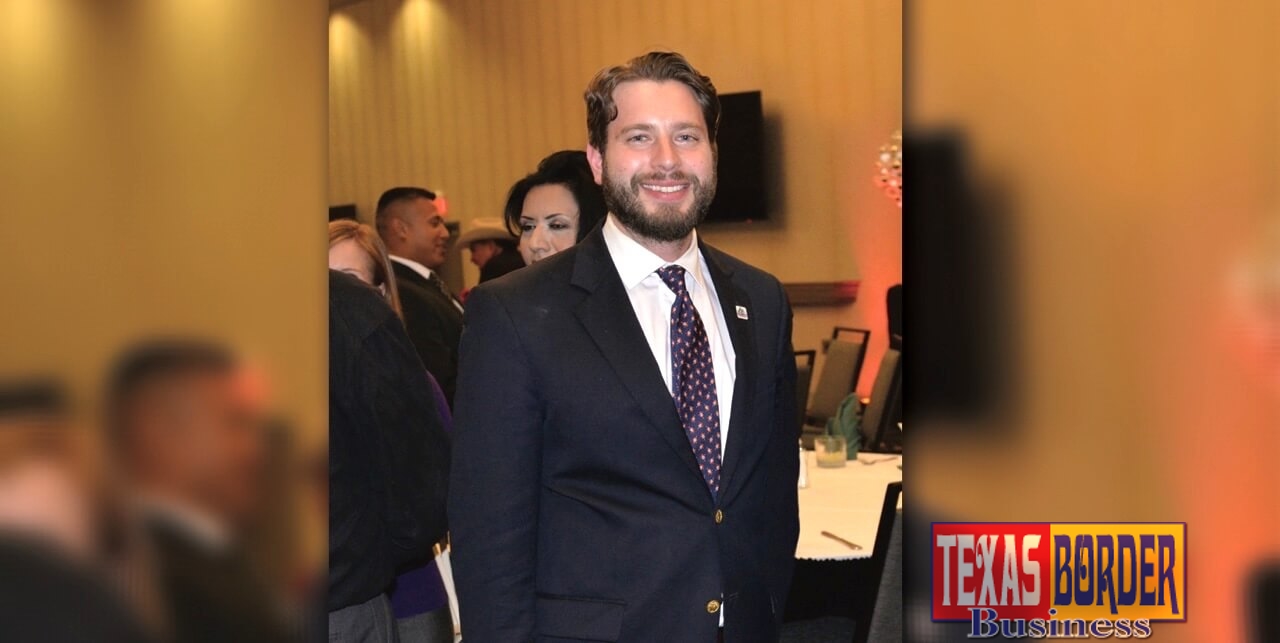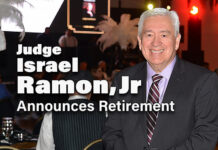By Roberto Hugo Gonzalez
As originally published by Texas Border Business newsprint edition February 2017
Cesar de Leon, an economist by profession and a lawyer by trade, is the City Commissioner at Large, place A, for the City of Brownsville, Texas. Brownsville is by far, the largest entity in the Valley based on population, and a thriving community, with a respectable history and traditions.
Brownsville is a unique city on the U.S./Mexico Border that years ago served as a site for several battles and events in the Texas Revolution, the Mexican–American War, and the American Civil War.
Just on the other side of the Rio Grande River lies Matamoros, Tamaulipas, another populous municipality and a major site of the Mexican War of Independence, the Mexican Revolution, and the French Intervention.
Cesar told Texas Border Business that the last census reports the City of Brownsville showed a population of 180,000 approximately, however, he believes that by 2020, the city will show beyond a 200,000 population.
“What I can tell you is an even more interesting fact, the median age in the United States is 37.” He continued, “The average age in Brownsville is 27, that means we are a young city. We are ten years younger than the median age across the nation, but I won’t be able to tell you by brackets until we see the 2020 census report”.
Cesar considers himself a Mexican-American millennial with a world vision. As millennials he says, “We want to change the world now.” But admits, “We must learn that change doesn’t come in 140 words, it comes through years of just keeping at it. We have to think about long-term projections.” He says that is the one thing that had changed in him as a person before he got elected.
Cesar is originally from Brownsville and his academic background includes: St. Mary’s Elementary, 1998; St. Joseph Academy, 2004; St Mary’s University, San Antonio, BA-Economics, 2008; St. Louis University, Madrid, Spain, 2006; St. Mary’s University, Juris Doctor, Law, 2013; London School of Economics, London, England, 2011. He also worked two years in the Texas legislature at the House of Representatives.
Are your parents in the Valley? “My dad’s name is Cesar de Leon Zivec. He is an electrical engineer, and he has a construction business in Matamoros. My mom is Clara (Zendejas) de Leon (teacher, 1st grade in Sharp Elementary). She is a bilingual educator with the Brownsville Independent School District. I have a younger brother. His name is Gustavo. He is a civil engineer; he works in Dallas and has followed in my dad’s footsteps.”
Tell me about the last name Zivec? “Zivec is Slovenian. My grandmother is originally from a little place now in Italy called Trieste, which a lot of people might know. That was the birthplace or the last home of Carlotta and Maximiliano, who came at one point to be the emperors of Mexico. Trieste used to be the port of the Austro-Hungarian empire until after world war one; then it became part of Italy as it is to this day.”
So, you have a lot of activity in your life, are you married? “I am not married. I am single.”
Are you planning to get married soon? “Not anytime soon. No girlfriend yet, and hopefully one day I will get married once I find my significant other, but at this point, there is no significant other, and there are no plans in the works for kids or getting married.” So, you are well educated, traveled around the world, an attorney and a public servant. How old are you? “This year in May, I’ll be 31.”
Why are you in politics? “Well, there are several reasons. One, Brownsville gave me a lot. It gave me my formative years; it gave me an education, and the opportunity to go study abroad in other cities.”
Cesar pointed out that when he moved back, he found out that he had several reasons to run for public office. One reason in particular that the street where he lives had no right turn lane. “Every morning I’d see the school bus make a hard right, and I just knew it was an accident waiting to happen. And when I started calling my city leaders, they just never made it a right turn lane. So I gathered petitions from the neighbors, and I told them, if you’re not going to do it, I’ll just fund it myself.”
That was the first issue, however, what came next had a lot to do with economic development. As an attorney, he was dealing with investor visas. Consequently, he had people willing and ready to invest in Brownsville but the red tape made it challenging.
He knew that economic development is the future of any community and the bureaucracy was in the way. He said, “In my opinion, Brownsville was further behind than the other municipalities around Rio Grande Valley. So, my mission was I’m going to get elected, and I’m going to cut a lot of this red tape.”
So now that you are elected have you fulfilled your mission? “I’ve met a lot of my campaign goals. The only two campaign goals I haven’t finished are… – they’re both tied to economic development. One is to make a one-stop shop for anyone that wants to open a business. I want to streamline it, where you can open a business within 24 hours in the city, permits and everything.”
The young commissioner doesn’t want any red tape, nothing that gets in the way of investment for the city, for economic development or what he calls the future of any city. He emphatically said, “That is one of the directions we need.”
Cesar is not stopping there; he sees another big bump on the road. He told Texas Border Business that Brownsville has something called impact fees. An impact fee is the interconnection fee that a public utility charges to connect the electricity or the water line. According to him, this is a surcharge that people pay in order to get service connection. “Brownsville has one of the highest in the Rio Grande Valley,” Cesar stated.
He also pointed out, “We’re at 90% of our maximum allowable rate. Cities like McAllen have no impact fees. Impact fees are used for some things, including capital improvement projects. Unfortunately, they are so high in Brownsville, it has stagnated growth. The price of the surcharge is just killing our projects, and that’s why you see a lot of people investing in other places, not in Brownsville. So, that is one of my long-term goals.” He feels that the city is getting closer to getting this plan done.
One other area that he likes is the “Citizen Wednesday” where anyone who has a concern with the city can know the time and place they will find their public servant. Cesar has also worked with the rest of the commission on streamlining a lot of the requests, and the budget process. “So the first year has been a lot of housekeeping, streamlining our departments, and then actually being open for business.”
His idea is to make it easier for Brownsville to blossom. “I’ve seen how investment can lift a region, and we see it for example in Hidalgo County, where you have an influx of capital developing the city from within.” He said, “I think that’s what we want to see more of in Cameron County. We want to see more business development, and we have a lot of things in the works. But the thing is, how do we leverage those things that are already happening?”
One of the other ambitious projects he believes in is the revitalization of downtown. He says that Brownsville is one of the few cities that are next to the river. He points out that even McAllen that is far away from Reynosa has a vibrant downtown.
Matamoros and Brownsville are next to each other. He adds that from downtown, Brownsville, people can see Matamoros, and from Matamoros, they can see downtown Brownsville. He emphasizes, “We want to revitalize our downtown.” But that one is much easier said than done. Cesar said that downtown Brownsville has been stagnant for over twenty years, so it will take creativity and a follow-up process to yield progress.
“Just recently, a committee was created to revitalize downtown. Some of the ideas being proposed are to freeze property taxes for several years, and that way people can reinvest in their properties without their appraisal value going up.” He said, “Property owners will save on taxes that can be used to reinvest into their buildings.”
Cesar also said that the other thing they could do is like in Dallas, a negative tax, where if you’re not using your building property owners will be charged a surcharge for just leaving it vacant. He said, “We also are working on revitalizing some of the old city buildings. There’s a lot of big projects, including a market square.”
Is there any other thing that you would like to say to end this conversation? “Well, I want to remind everybody that Dallas/Fort Worth at one point were two cities that had very different viewpoints. At one point the mayors came together, and they worked on the Dallas/Fort Worth Airport. I think there are so many great regional projects now in the works between Cameron/Hidalgo counties, that I know one day we will be the Cameron/Hidalgo Metropolitan Area. So, I just want to invite everybody to think, not only globally, but think about us as a region. We are a region, and we will grow as a region. Thank you so much.” TBB




















